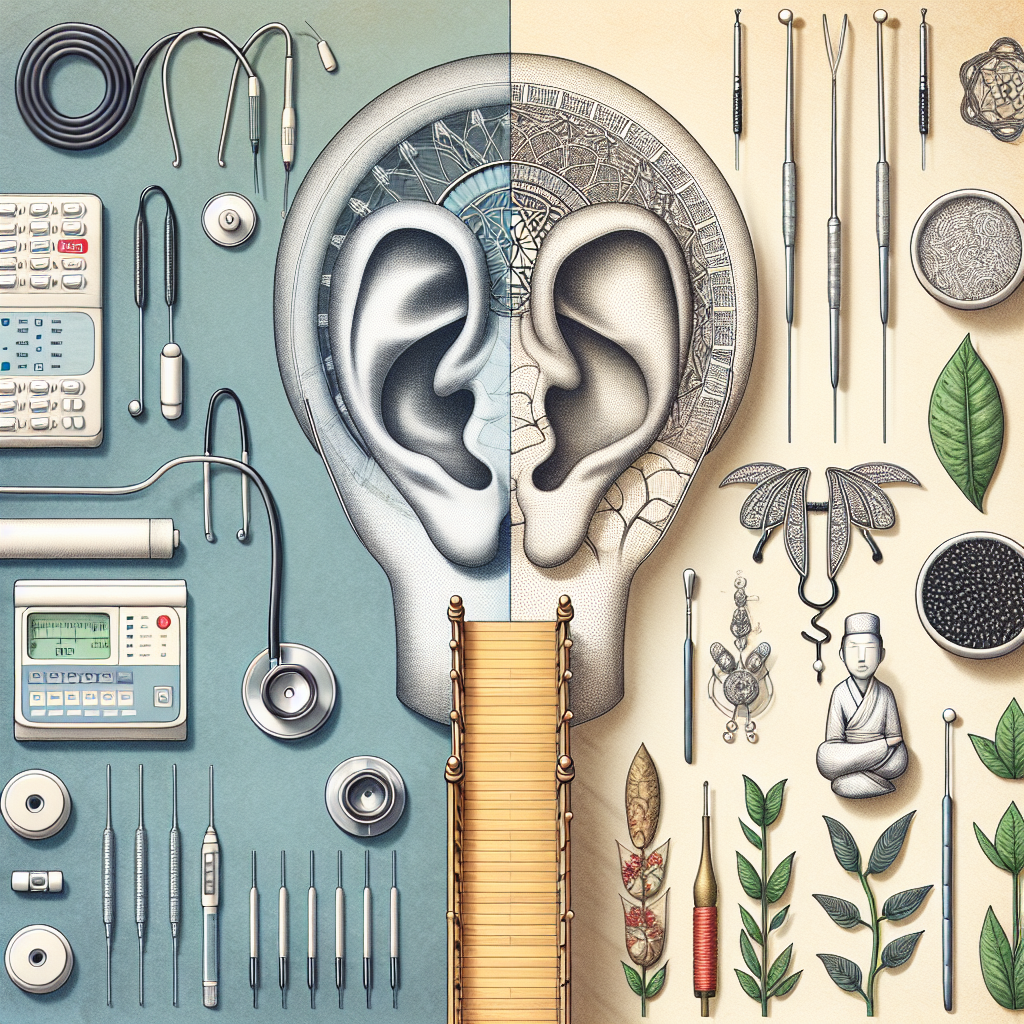Bridging Silence: Integrative Approaches to Treating Deafness through Western Medicine and Eastern Traditions
Deafness, a condition affecting millions worldwide, can create profound challenges in communication and daily living. Throughout history, both Western medicine and Eastern traditions have developed various approaches to address hearing loss, each bringing unique perspectives and methodologies. In this article, we will explore and compare the treatment approaches for deafness within Western medical practices and Eastern alternative traditions, shedding light on how these diverse methods can complement each other to provide holistic care.
Understanding Deafness
Deafness can range from partial to complete loss of hearing and may have congenital (present at birth) or acquired causes. It can result from genetic factors, infections, trauma, exposure to loud noise, or age-related degeneration. Understanding the underlying cause is crucial for determining the most effective treatment.
Western Medical Approaches
Western medicine relies on evidence-based practices and technological advancements to diagnose and treat deafness. The treatment modalities are often categorized into surgical, pharmaceutical, and technological interventions:
1. Diagnostic Tools: Accurate diagnosis is the cornerstone of effective treatment. Audiologists use a variety of tests, including audiograms, tympanometry, and otoacoustic emissions, to assess the degree and type of hearing loss.
2. Hearing Aids: For many individuals with partial hearing loss, hearing aids are a primary solution. These devices amplify sound, making it easier for the user to hear and understand speech.
3. Cochlear Implants: For individuals with severe to profound hearing loss who do not benefit from hearing aids, cochlear implants can be life-changing. These devices bypass damaged parts of the ear and directly stimulate the auditory nerve, allowing the brain to process sound signals.
4. Surgical Interventions: Some cases of deafness can be treated surgically. For example, otosclerosis, a condition where abnormal bone growth in the middle ear causes hearing loss, can be treated with a stapedectomy. Similarly, chronic infections or tumors may require surgical management.
5. Pharmaceutical Treatments: In cases where hearing loss is due to infections or inflammatory conditions, medications such as antibiotics or steroids can be effective. Research is also ongoing into gene therapy and other pharmacological solutions for genetic causes of deafness.
Eastern Traditions and Alternative Approaches
Eastern traditions, including Traditional Chinese Medicine (TCM), Ayurveda, and other holistic practices, offer alternative perspectives on treating deafness. These approaches often focus on balancing the body’s energy and enhancing overall health, which in turn can improve hearing function.
1. Traditional Chinese Medicine (TCM):
– Acupuncture: Acupuncture involves inserting fine needles into specific points on the body to stimulate energy flow (Qi). Some studies suggest that acupuncture may improve hearing by enhancing blood flow to the ears and reducing inflammation.
– Herbal Medicine: TCM practitioners use a variety of herbs to treat hearing loss. For example, Ginkgo Biloba is believed to improve circulation and has been studied for its potential benefits in treating tinnitus (ringing in the ears).
– Qi Gong and Tai Chi: These practices focus on cultivating and balancing Qi through movement and meditation. They are thought to support overall health and well-being, which can indirectly benefit hearing.
2. Ayurveda:
– Herbal Remedies: Ayurveda uses herbs such as Ashwagandha and Brahmi, which are believed to strengthen the nervous system and improve auditory function.
– Massage and Oil Treatments: Ayurvedic practitioners may recommend oil massages (Abhyanga) and specific ear oil treatments (Karna Purana) to improve hearing and reduce ear-related issues.
– Diet and Lifestyle: Ayurveda emphasizes a balanced diet and lifestyle to maintain health and prevent disease. Specific dietary recommendations may be given to support ear health.
3. Other Holistic Approaches:
– Homeopathy: Homeopathic remedies are selected based on the individual’s symptoms and overall constitution. Some homeopaths report success in treating hearing loss with remedies like Calcarea Carbonica and Silicea.
– Sound Therapy: Sound therapy involves using specific frequencies and vibrations to stimulate the auditory system. Techniques such as tuning fork therapy and music therapy are employed to promote hearing health.
Comparing and Contrasting Approaches
While Western medicine and Eastern traditions have different philosophies and methods, they can be complementary in treating deafness. Here are some key points of comparison and contrast:
1. Philosophical Differences:
– Western Medicine: Focuses on anatomical and physiological causes of hearing loss, using technology and pharmaceuticals to address specific issues. It is highly evidence-based and relies on clinical trials and scientific research.
– Eastern Traditions: Emphasize holistic health and balance, considering hearing loss as a manifestation of underlying imbalances in the body’s energy or doshas. Treatments are often based on centuries-old practices and empirical knowledge.
2. Treatment Modalities:
– Technology vs. Natural Remedies: Western medicine leverages advanced technology (hearing aids, cochlear implants) and pharmaceuticals, while Eastern traditions use natural remedies (herbs, acupuncture) and lifestyle modifications.
– Immediate vs. Long-Term Focus: Western interventions often provide immediate relief or restoration of hearing (e.g., cochlear implants), whereas Eastern approaches may require a longer-term commitment to see benefits (e.g., regular acupuncture sessions).
3. Integration Potential:
– Combining both approaches can offer a more comprehensive treatment plan. For instance, a patient with hearing loss might use hearing aids while also receiving acupuncture to improve overall health and potentially enhance hearing aid effectiveness.
– Collaborative care involving audiologists and alternative practitioners can ensure that patients receive the best of both worlds, addressing both the physical and holistic aspects of deafness.
Conclusion
Bridging the gap between Western medicine and Eastern traditions in treating deafness can provide a more integrative and holistic approach to care. While Western medicine offers advanced technological and surgical solutions, Eastern traditions bring valuable insights into balancing the body’s energy and promoting overall well-being. By understanding and respecting the strengths of each system, we can create comprehensive treatment plans that address the multifaceted nature of deafness, ultimately improving the quality of life for those affected by this condition.

